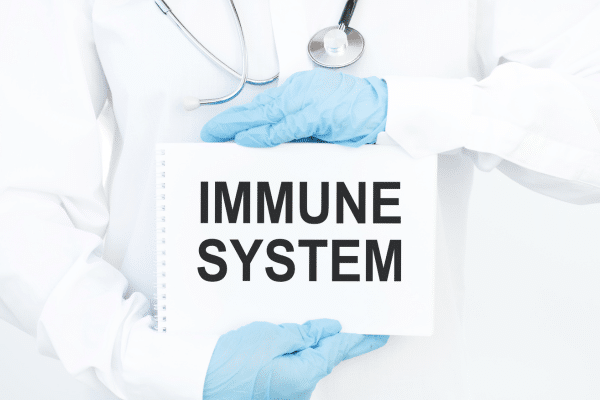Antioxidants, often hailed as nature’s defense mechanism, are compounds that prevent or slow damage to cells caused by free radicals. These free radicals, produced when the body breaks down food or when exposed to radiation and tobacco smoke, can contribute to various diseases and accelerate aging. A diet rich in antioxidants plays a pivotal role in safeguarding the body from these harmful effects, providing numerous health benefits ranging from boosting immunity to fighting cellular damage.
Contents
Boosts Immune System

Antioxidants play a crucial role in fortifying the immune system. A robust immune system is essential for the body to combat infections, bacteria, and viruses. By neutralizing free radicals, antioxidants prevent these harmful molecules from weakening the immune system. Vitamins such as C, E, and beta-carotene are examples of antioxidants that enhance immune function, strengthening the body’s defense against common colds, flu, and other infections.
The relationship between antioxidants and the immune system is symbiotic. As the immune system functions to protect the body against external threats, it inevitably produces free radicals. Antioxidants, in turn, protect the immune cells from the damage these free radicals might cause. By supporting and enhancing the body’s natural defenses, antioxidants ensure a resilient and efficient immune response.
Enhances Skin Health

Skin, the largest organ of the body, is constantly exposed to external aggressors like UV radiation, pollutants, and toxins. These elements can induce oxidative stress on the skin, leading to premature aging, wrinkles, and increased risk of skin diseases. Antioxidants play a pivotal role in preserving skin health by combating the damages caused by these external factors.
Various skincare products are infused with antioxidants due to their rejuvenating properties. Vitamins C and E, for instance, have shown potential in reducing signs of aging and protecting against sun damage. By neutralizing free radicals, these antioxidants help in maintaining skin elasticity, reducing wrinkles, and promoting a youthful glow.
Reduces Stress

Stress is a ubiquitous part of modern life, with numerous physical and mental implications. Chronic stress can lead to an array of health issues, including hypertension, diabetes, and even mental health disorders such as depression. At the cellular level, prolonged stress contributes to excessive production of free radicals, exacerbating oxidative stress and its detrimental effects on health.
Antioxidants, in their protective role, can alleviate some of the damages induced by stress. By mitigating the adverse effects of free radicals produced during stress, antioxidants help in maintaining cellular health and function. Consuming antioxidant-rich foods and supplements can, therefore, be a beneficial strategy in managing the health implications associated with chronic stress.
Supports Cardiovascular Health

The cardiovascular system, comprising the heart and blood vessels, is crucial for supplying nutrients and oxygen to every part of the body. Oxidative stress can severely affect this system, leading to conditions like atherosclerosis, hypertension, and even heart attacks. Elevated levels of free radicals can oxidize LDL cholesterol, a process that contributes to the formation of plaques in arteries, hindering blood flow.
Antioxidants come into play by preventing the oxidation of LDL cholesterol, thus reducing the risk of plaque formation and subsequent cardiovascular diseases. Nutrients such as vitamin E, polyphenols in green tea, and omega-3 fatty acids have displayed potential in supporting heart health. Consuming a diet rich in these antioxidants ensures the wellness and longevity of the cardiovascular system.
Fights Cellular Damage

Every day, our bodies experience oxidative stress, a phenomenon where an imbalance between free radicals and antioxidants occurs. This imbalance leads to the damaging of vital cells, DNA, and proteins, potentially causing a cascade of health issues. Oxidative stress has been linked to various chronic diseases, including heart disease, arthritis, and neurodegenerative disorders.
Antioxidants serve as the frontline defense against this cellular damage. By scavenging and neutralizing free radicals, they reduce the potential harm these reactive molecules can cause. Foods such as berries, nuts, and dark leafy greens are rich in these protective compounds. Incorporating them into one’s diet not only offers delicious flavors but also provides an armor against the harmful effects of oxidative stress.
Protects Brain Health

The brain, a marvel of biological engineering, remains vulnerable to oxidative stress. Over time, unchecked oxidative damage can pave the way for neurodegenerative diseases such as Alzheimer’s and Parkinson’s. The brain’s high consumption of oxygen and its abundance of fatty acids make it particularly susceptible to free radical attacks.
Antioxidants serve as guardians for brain health. They neutralize free radicals, preventing them from causing detrimental changes in brain function and structure. Compounds like flavonoids, found in blueberries and dark chocolate, have shown promise in boosting cognitive function and might even play a role in preventing age-related decline. Ensuring a diet rich in these protective agents can be pivotal in maintaining brain health throughout life.
Promotes Eye Health

The eyes are constantly exposed to light and potential oxidative damage. Over time, this exposure can contribute to diseases like age-related macular degeneration and cataracts. Lutein and zeaxanthin, antioxidants found in high concentrations in the eyes, play a protective role against harmful high-energy light waves like ultraviolet rays.
Including antioxidant-rich foods in one’s diet can significantly benefit eye health. For instance, lutein and zeaxanthin are abundant in foods like kale, spinach, and eggs. Consuming these regularly can bolster the eyes’ natural defenses, potentially delaying or even preventing the onset of some common ocular diseases.
Role In Cancer Prevention

Oxidative stress and its resultant damage have been linked to the development of various cancers. DNA mutations resulting from oxidative damage can lead to uncontrolled cell growth, a hallmark of cancer. By neutralizing free radicals, antioxidants reduce the chance of such mutations, playing a preventative role.
It’s essential to note that while antioxidants can reduce the risk, they aren’t a guaranteed shield against cancer. However, studies have pointed to the potential benefits of certain antioxidants in decreasing cancer risk. For example, lycopene, abundant in tomatoes, has been associated with a reduced risk of prostate cancer.
The Bottom Line
Antioxidants serve as vital warriors in the battle against oxidative stress and its cascading impacts on health. From fortifying the immune system to protecting vital organs, their importance cannot be overstated. Adopting a diet rich in antioxidants not only promises better health today but ensures a better quality of life in the future. Thanks for reading!


